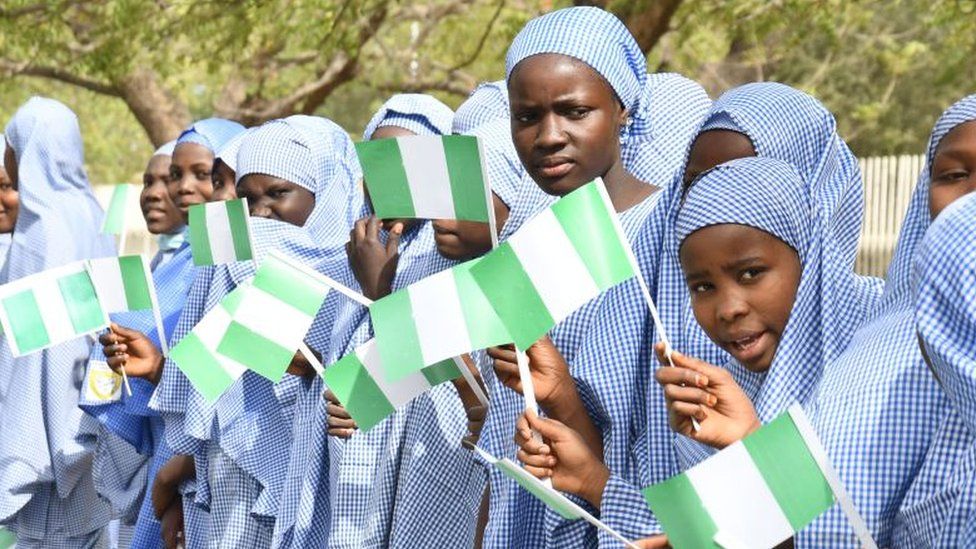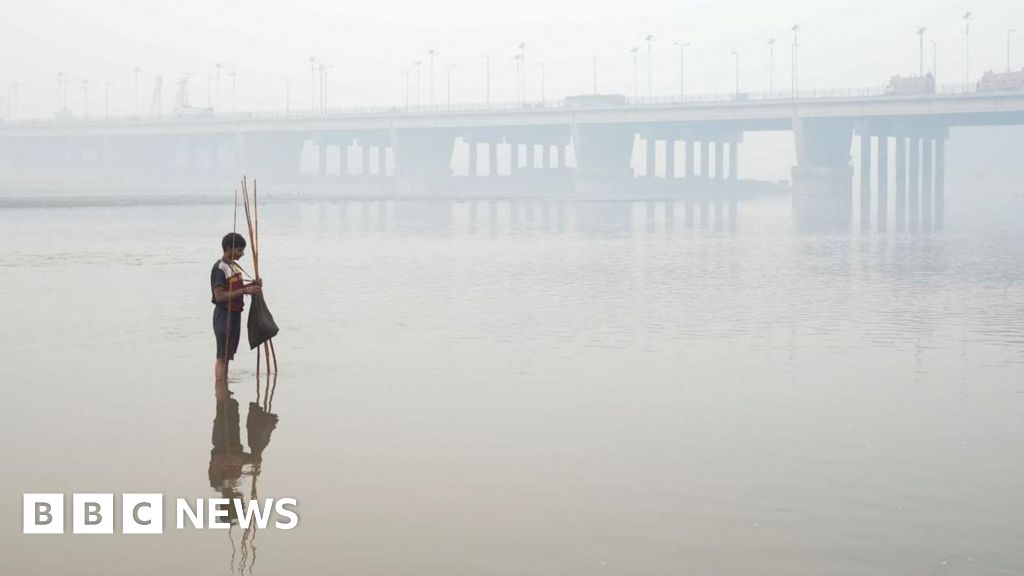ARTICLE AD BOX
 Image source, AFP
Image source, AFP
As both Africa's largest economy and most populous country - with 214 million people - what happens in Nigeria has a wide impact. Voters are set to elect a new president after eight years under Muhammadu Buhari but whoever wins will face some tough challenges.
Here, in charts, are some of the things on the minds of those about to cast their ballots.
In the last year, Nigerians - like people around the world - have been hit by rising food prices caused by the fallout from the conflict in Ukraine. But prices had been going up before the fighting began - caused by the closure of the border to many imports and a scarcity of foreign exchange.
Overall, inflation in 2022 stood at just under 19%, the highest in two decades. The staple food, garri - cassava flakes - has been one of the least affected of the basic goods, but the large jump in the price of other essentials such as tomatoes and vegetable oil is having a big impact on families.
If the new president wants to help people with the cost of basic items, they will face the problem that the government is already spending more than it receives.
Huge sums are spent on subsidising petrol and the oil-producing nation has not been able to take advantage of higher oil prices as it has little refining capacity and has to re-import petrol.
Analysts are getting increasingly concerned about the sustainability of the public debt with the cost of paying the interest on it exceeding government income at times in 2022.
As one of Africa's top oil producers, Nigeria has relied on the black gold for government revenue as well as a source of vital foreign currency. Nevertheless, the oil-rich country has not taken advantage of the money generated - much of it has been stolen or misused.
And oil production has been declining in the last decade. In 2022 it fell to its lowest level in 30 years.
Oil theft and vandalism have been blamed for the loss of output. This, added to years of under-investment and the age of the oil fields themselves, means that Nigeria is falling behind other oil-producing nations.
With half of Nigerians under the age of 18, the country's leaders face the challenge of how to harness this youthful population.
They need to help the economy grow to fulfil the needs and ambitions of all those young people.
Even with so many people too young to cast their ballots, 40% of registered voters are under the age of 35, making them a huge constituency. A direct appeal to them could influence the outcome of the election.
The first thing that most young Nigerians want is a job.
Currently a third of Nigerians who want to work are unemployed. When it comes to young people, more than half of those between 15 and 24 are looking for work.
The measures to deal with the Covid pandemic certainly had an impact but unemployment rates were rising before the outbreak of the virus.
The economy has grown since 2015, but just not fast enough to accommodate all the new people seeking jobs.
Insecurity has been cited as one of the reasons behind low growth, but economists have also blamed other measures such as currency restrictions and shutting the borders to many imports, saying they discourage investment.
The level of access to some basic infrastructure that could improve the ease of doing business, as well as everyday lives, is low.
The poor state of the power network has long been a source of criticism and only around 55% of the population have access to electricity, according to World Bank figures.
And when it comes to the internet, just 36% of Nigerians are getting online, which puts it in the middle of the pack of West African countries.
Dealing with the growing levels of violence in Nigeria will be a major priority for the next president.
When President Buhari was first elected in 2015, the threat from militant Islamist group Boko Haram in the north-east was the biggest concern. While they no longer control much territory, upsurges in kidnappings, politically motivated attacks, farmer-herder tensions, criminal violence and a separatist insurgency in the south-east, as well as police brutality, undermine faith in the state to keep the population safe.
This is no longer an issue that is largely confined to the north-east - the problem has now spread across the country.
Your device may not support this visualisation
Of all the children around the world who don't go to school, one in five live in Nigeria.
While this is partly a reflection of the sheer size of the country's young population, the fact that nearly 40% of the country's 5-11-year-olds are not in school is a major concern.
This is a countrywide issue but attendance levels are generally worse in the north. Some of this has been affected by insecurity, but gender and poverty are also factors.
Your device may not support this visualisation
Young Nigerians' demands for the incoming leader

 1 year ago
21
1 year ago
21








 English (US)
English (US)